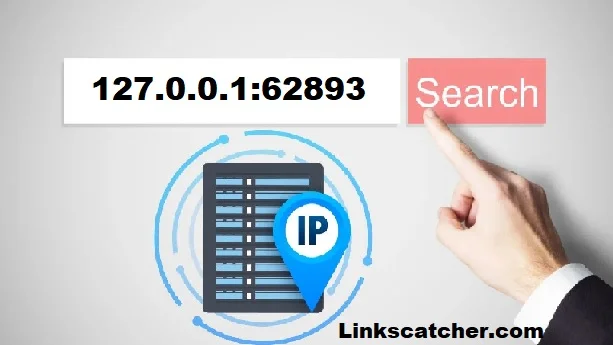
Welcome to the world of local host and ports! If you’re scratching your head wondering what 127.0.0.1:62893 are all about, you’re in the right place. This article will unravel the mysteries of this technical jargon and make it as clear as day. Let’s dive in!
Understanding Local host (127.0.0.1:62893)
Local host is a term used to describe the local computer that a program is running on. It’s like calling yourself “me.” In networking, 127.0.0.1:62893is the loopback address, meaning it points back to your own machine.
How Local host Works
When you use 127.0.0.1:62893, your computer talks to itself. This is incredibly useful for testing and development because it allows developers to simulate a network without needing an internet connection.
What Are Ports?
Ports are like doors on your computer that allow it to send and receive data. Each port has assigned a number, and different services use different ports. When data has sent to your computer, it’s directed to a specific port. Think of it like mail delivered to different departments in a large office building.
Common Port Numbers and Their Uses
- The Port 80: HTTP (web traffic)
- Port 443: HTTPS (secure web traffic)
- Port 21: FTP (file transfer)
- 0.0.1:62893 Explained
Breakdown of the Address
127.0.0.1 Is your local machine. The number after the colon, 62893, is a port number. Together, they specify a particular service on your computer. Port 62893 isn’t a well-known port, which means it could be used for custom applications or development purposes.
Common Applications and Uses

Developers often use high-numbered ports like 62893 to avoid conflicts with well-known ports. This port could used for a custom web server, application testing, or other development tasks. Open your browser and type in 127.0.0.1:62893. If everything is set up correctly, you should see your web server’s default page.
Troubleshooting Common Issues
- Connectivity Issues: Ensure your server is running and configured correctly. Check for typos in the IP address and port number.
- Port Conflicts: If another application is using port 62893, you’ll need to choose a different port or stop the conflicting application.
- Firewall and Security Concerns: Ensure your firewall allows traffic on port 62893. Adjust settings if necessary to permit local traffic.
Local Development Environments
Developers use local host to create and test websites and applications before deploying them to a live server. Local host provides a safe environment to troubleshoot issues without affecting real users. Students and educators use local host 127.0.0.1:62893 to teach and learn about networking and web development.
Advanced Configurations
Modify configuration files to change how local host behaves. This could include changing the port number or setting up virtual hosts. Use tools like netstat or lsof 127.0.0.1:62893 to manage and monitor port usage on your system.
Adjust settings in your server software to improve speed and efficiency. This might include caching or load balancing techniques.
Local host in Different Operating Systems
Windows: Use tools like XAMPP or WAMP to set up a local development environment easily.
macOS: Leverage built-in tools like Apache and use Homebrew to install additional software.
Linux: Most Linux distributions come with powerful tools for setting up and managing local servers.
Case Studies
Real-World Examples of Using Local host
Companies and developers have successfully used local host to create and test software before going live.
Success Stories and Lessons Learned
Learning from others’ experiences can help you avoid common pitfalls and optimize your local host setup.
Future of Local host and Ports
The rise of containerization (e.g., Docker) and virtualization is changing how we use local host and ports. Advancements in network security and software development will continue to shape the use of local host. Expect more automation and tools to simplify the management of local host 127.0.0.1:62893 environments in the future.
Conclusion of 127.0.0.1:62893
Local host and ports, like 127.0.0.1:62893, are fundamental to modern development and networking. By understanding and effectively utilizing these tools, you can create, test, and deploy applications more efficiently and securely.
FAQS about 127.0.0.1:62893
What is the significance of 127.0.0.1?
127.0.0.1:62893 is the loopback address, meaning it points back to your own computer. It’s used for testing and development purposes.
How do I know which port to use?
Ports are assigned based on the services they provide. Common ports include 80 for HTTP and 443 for HTTPS. For custom applications, you can use high-numbered ports to avoid conflicts.
Can I change the default port number?
Yes, you can change the port number in your server’s configuration file. Just ensure the new port isn’t already in use.
What are some common mistakes to avoid?
Avoid using default ports for sensitive services, failing to secure your local host, and not testing your setup thoroughly.
How can I ensure my local host setup is secure?
Use strong passwords, update software regularly, monitor access logs, and restrict access to local host only.